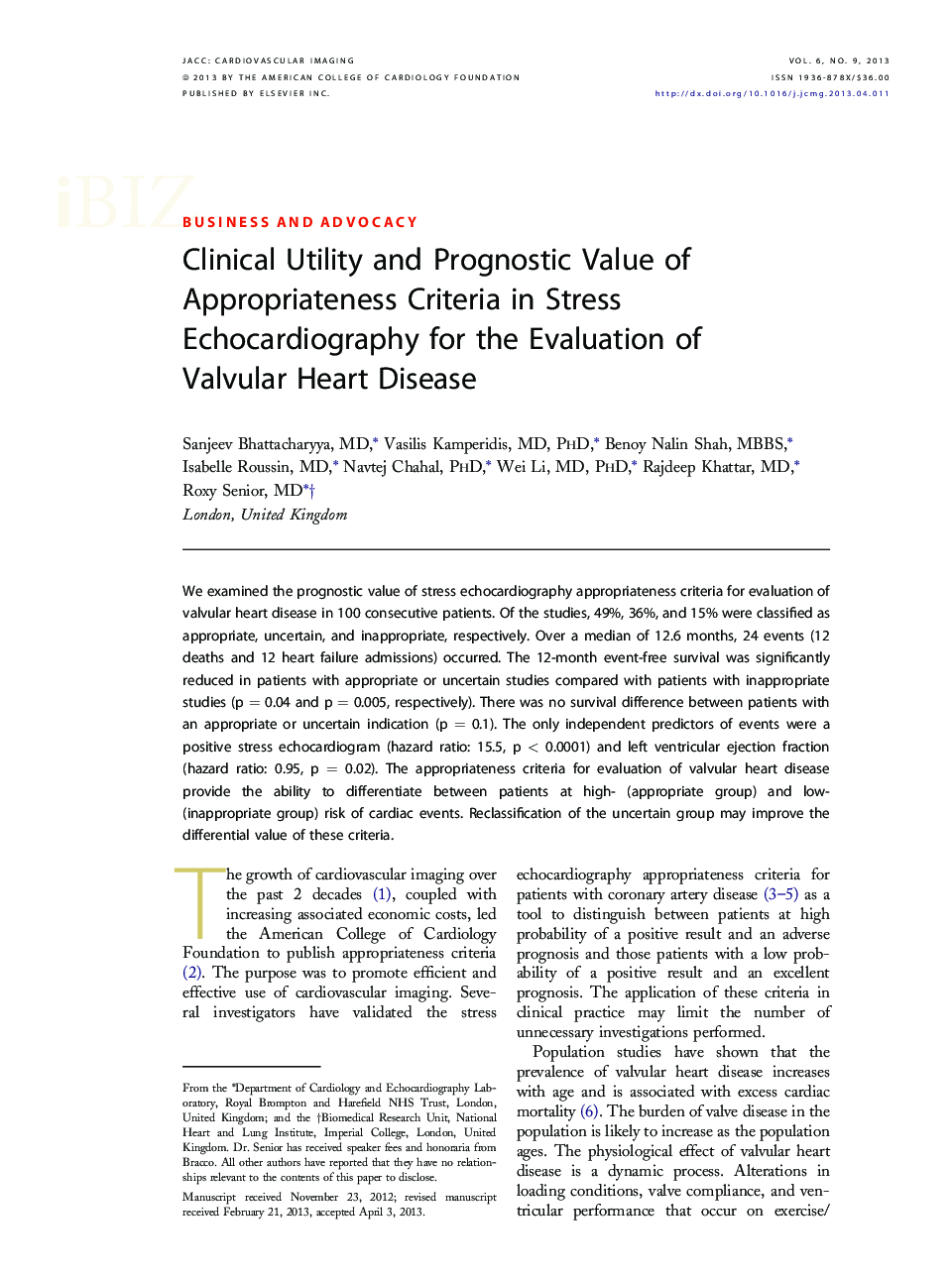| کد مقاله | کد نشریه | سال انتشار | مقاله انگلیسی | نسخه تمام متن |
|---|---|---|---|---|
| 2937872 | 1176904 | 2013 | 6 صفحه PDF | دانلود رایگان |

We examined the prognostic value of stress echocardiography appropriateness criteria for evaluation of valvular heart disease in 100 consecutive patients. Of the studies, 49%, 36%, and 15% were classified as appropriate, uncertain, and inappropriate, respectively. Over a median of 12.6 months, 24 events (12 deaths and 12 heart failure admissions) occurred. The 12-month event-free survival was significantly reduced in patients with appropriate or uncertain studies compared with patients with inappropriate studies (p = 0.04 and p = 0.005, respectively). There was no survival difference between patients with an appropriate or uncertain indication (p = 0.1). The only independent predictors of events were a positive stress echocardiogram (hazard ratio: 15.5, p < 0.0001) and left ventricular ejection fraction (hazard ratio: 0.95, p = 0.02). The appropriateness criteria for evaluation of valvular heart disease provide the ability to differentiate between patients at high- (appropriate group) and low- (inappropriate group) risk of cardiac events. Reclassification of the uncertain group may improve the differential value of these criteria.
Journal: JACC: Cardiovascular Imaging - Volume 6, Issue 9, September 2013, Pages 987–992